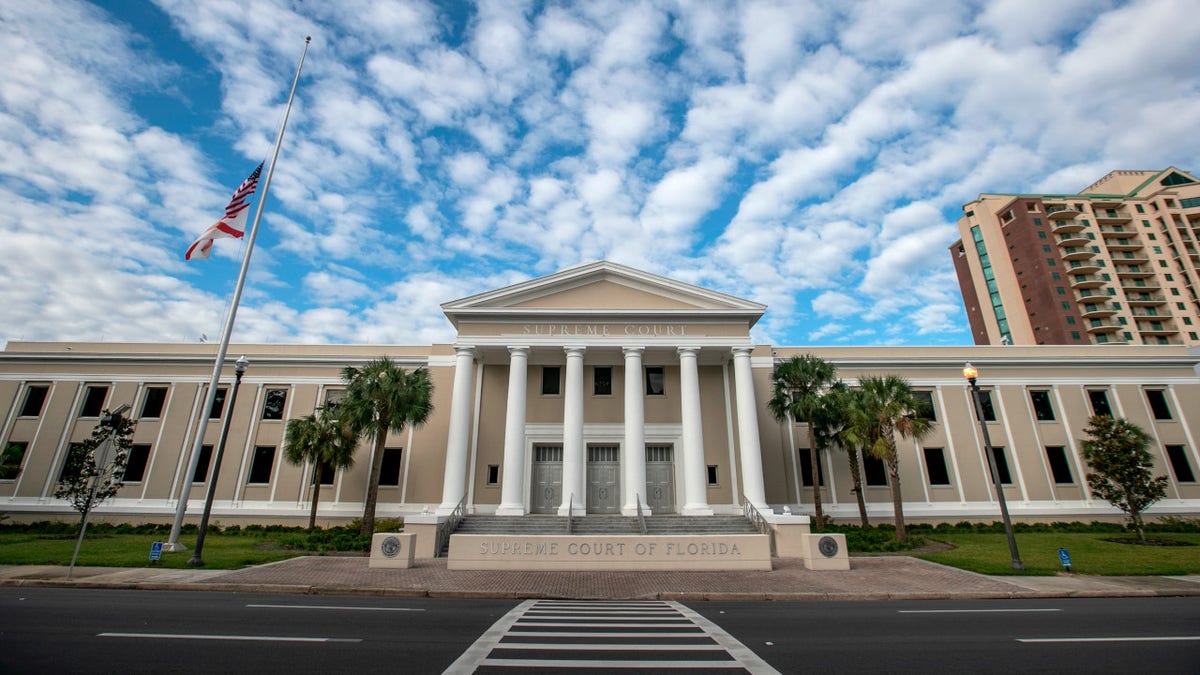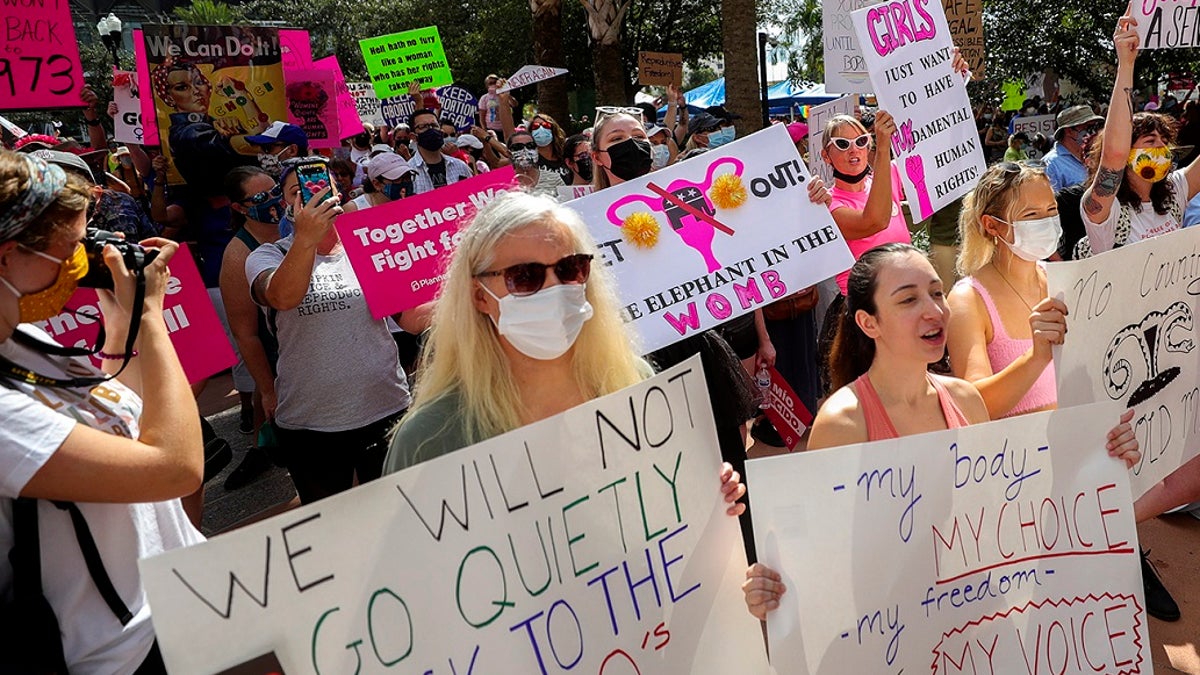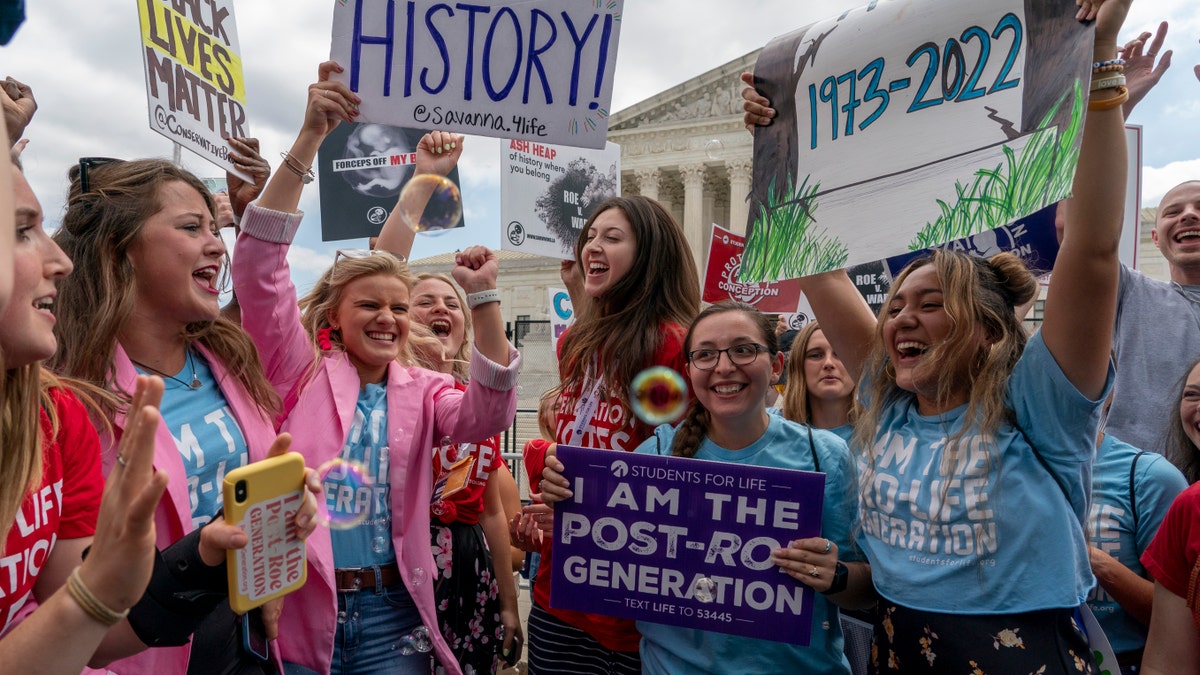Supreme Court skeptical on abortion pills
The press was relieved at apparent opposition to ban.
Florida's highest court issued a pair of rulings Monday that upholds a 15-week ban on abortion and allows voters to decide on a proposed constitutional amendment that would enshrine abortion rights.
The ruling by the Florida Supreme Court rejected an argument by the state Attorney General Ashley Moody that a proposed amendment on the matter should be kept off of the ballot.
In a post on X, Moody said her office appreciated the court "revisiting its precedent on Florida’s right to privacy and returning the meaning of that amendment to the voters' original intention."
NEW YORK REPUBLICAN CO-SPONSORS BILL DEFENDING IVF TREATMENT

The Florida Supreme Court building is pictured on November 10, 2018, in Tallahassee, Florida. (Mark Wallheiser/Getty Images)
"That decision outlines the difficulties and divisiveness of allowing vague and misleading initiatives on the ballot," she wrote. "We have argued from the beginning that these two new constitutional initiatives will mislead voters. We maintain that it will be an uphill battle to educate them. However, we respect the court’s decisions."
Moody, a Republican, argued that the amendment was deceptive and that voters won't realize how far it will expand access to abortion.
"Not only will this measure bring dangerous late-term abortions back to Florida, but it will allow girls who aren’t old enough to get their ears pierced on their own get an abortion without a parent’s okay," said Katie Daniel, the Florida policy director for Susan B. Anthony Pro-Life America, which filed a brief opposing the proposed amendment. "Those girls and the women who have abortions will be put at risk when this measure eliminates every abortion health regulation on the books."
Fox News Digital has reached out to abortion providers.
DeSantis Press Secretary Julia Friedland said the three female justices on the court who dissented from the majority "got it right."
ALABAMA GOVERNOR SIGNS BILL PROTECTING IVF INTO LAW: 'PROUD WE ARE A PRO-LIFE, PRO-FAMILY STATE'

Participants wave signs as they walk back to Orlando City Hall during the March for Abortion Access on Oct. 2, 2021, in Orlando, Fla. The Florida Supreme Court on Monday upheld the state's ban on most abortions after 15 weeks of pregnancy, which means a subsequently passed six-week ban can soon take effect. (Chasity Maynard/Orlando Sentinel via AP, File)
"This amendment is misleading and will confuse voters," she told Fox News Digital in a statement. "The language hides the amendment's true purpose of mandating that abortions be permitted up to the time of birth."
The proposed amendment that will be put before voters is worded: "No law shall prohibit, penalize, delay, or restrict abortion before viability or when necessary to protect the patient’s health, as determined by the patient’s healthcare provider."
The high court also upheld Florida's ban on most abortions after 15 weeks of pregnancy, which means a subsequently passed six-week ban can soon take effect. The ruling means that a six-week abortion ban that was signed into law last year by DeSantis will take effect.
Abortion-rights supporters across the country have pushed to put the question on the ballot following the overturning of Roe v. Wade by the U.S. Supreme Court. Voters in Maryland will decide in November whether the state should enshrine the right to an abortion and "reproductive freedom" in the state's constitution.

Pro-life women celebrate following the U.S. Supreme Court's decision to overturn Roe v. Wade, outside the Supreme Court in Washington in 2022. (AP Photo/Gemunu Amarasinghe)
CLICK HERE TO GET THE FOX NEWS APP
In New York, voters will decide on a proposed constitutional amendment to prohibit the denial of their rights based on "ethnicity, national origin, age, and disability" or "sex, including sexual orientation, gender identity, gender expression, pregnancy, pregnancy outcomes, and reproductive healthcare and autonomy."
The Associated Press contributed to this report.


























